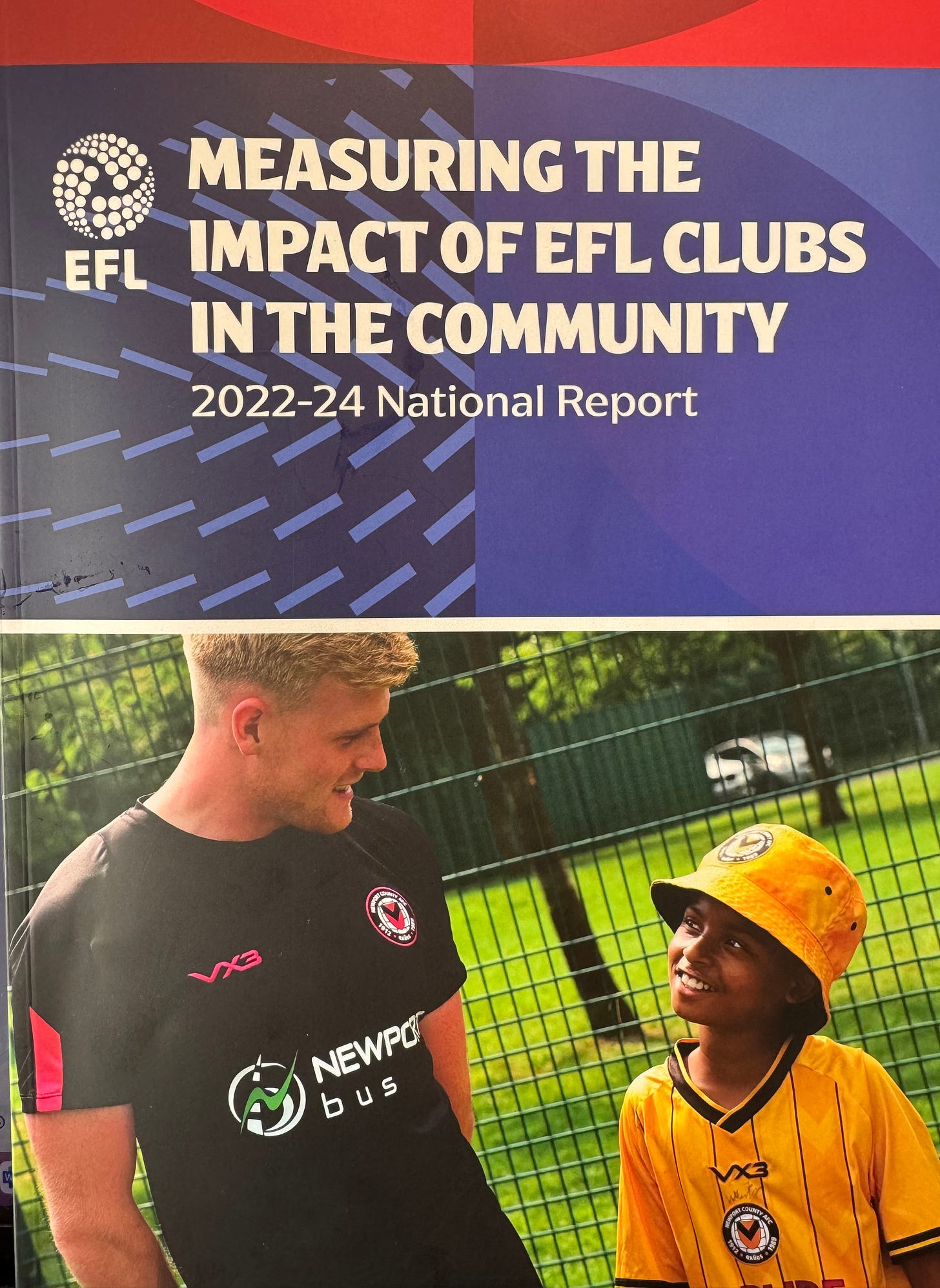Pubs, clubs, communities and why the EFL is vital to the country.
A shocking total of 509 pubs closed in England and Wales in 2023, and a further 412 last year, making it more than 2,000 calling last orders since 2020. Of our four closest locals here in the East Midlands, one is garlanded with awards, another pretty good, the third’s just closed down, and the fourth has been padlocked for two years. A perfect storm of lockdown, rising energy prices, the incoming hike in national insurance and other factors has accelerated this trend. Judging by figures released by the EFL this week about fans’ drinking habits there would be even more closures without football.
This is stating the bleedin’ obvious to to any fan but the pre-match pint remains embedded in match-day culture. “Match-days drive local business activity, with 35% of home and 49% of away fans visiting nearby pubs,” says the EFL in its latest “Measuring the impact of EFL clubs in the Community” national report. Fans spend £639.9m on what the EFL calls “pre- and post-match refreshments” (ie not in grounds). The hospitality industry needs the EFL.
Following an extensive survey of fans, the EFL estimated that total supporter spending at matches last season was £1.88bn. “Of this, 34% was spent on food and drinks outside stadiums, 31% on club refreshments and merchandise, 26% on travel, and 9% on accommodation”. Local economies need this EFL traffic, similar to the Premier League effect.
The EFL, of course, reaches into far more corners of the country. It's another reason why EFL clubs are vital parts of their communities. Almost 50m people, 82% of the population, live within 15 miles of an EFL club in England and Wales. Clubs’ importance is also reflected in Government statistics that show that 83% “of the most deprived neighbourhoods in England and Wales are within 10 miles of an EFL club”.
The EFL says that “in the past 40 years, EFL clubs have taken on even greater importance within their communities. As a result of long periods of de-industrialisation, social and economic upheaval and pressures on public spending, EFL clubs and their charities have taken on a wide range of responsibilities for supporting their communities, placing themselves at the forefront of efforts to secure and improve the quality of people’s lives”.
The EFL chairman, Rick Parry, notes that the 72 clubs “serve as critical pillars to their communities 365 days a year, opening their doors and providing support to people on a daily basis”. The EFL estimates its clubs sustain 53,518 jobs in local communities.


